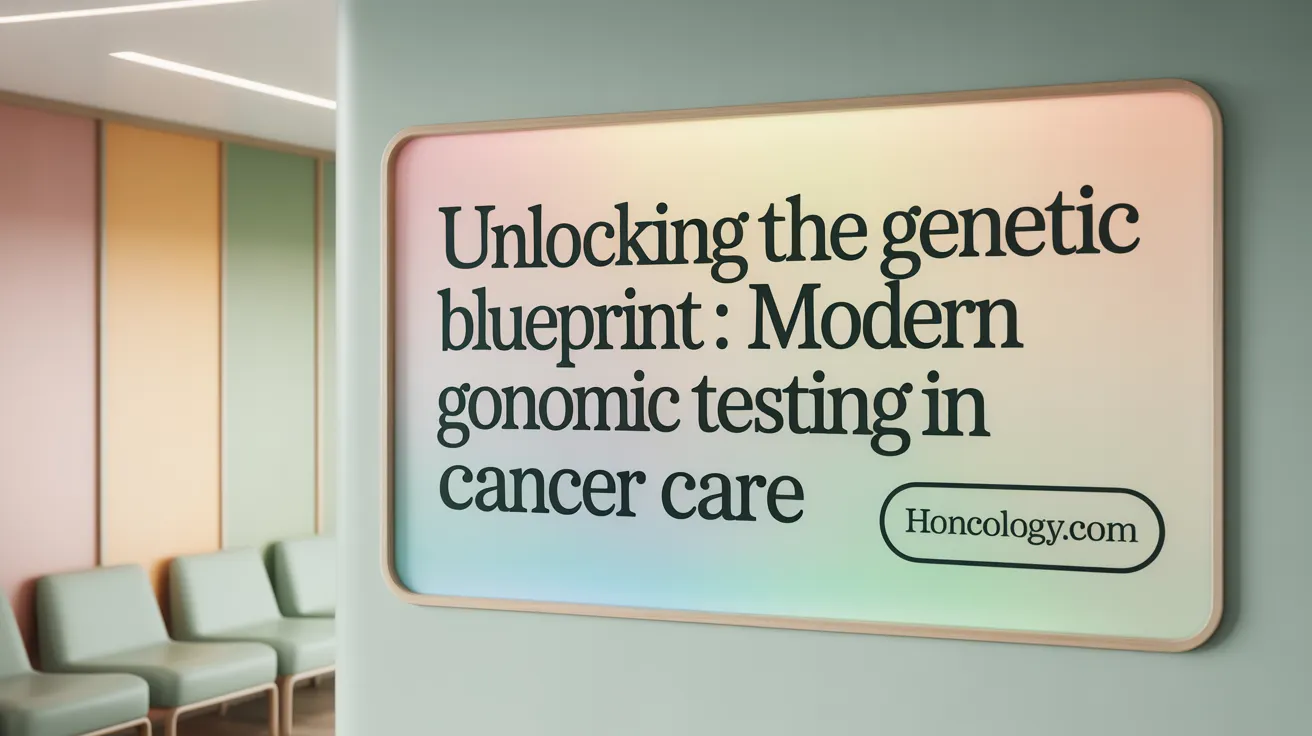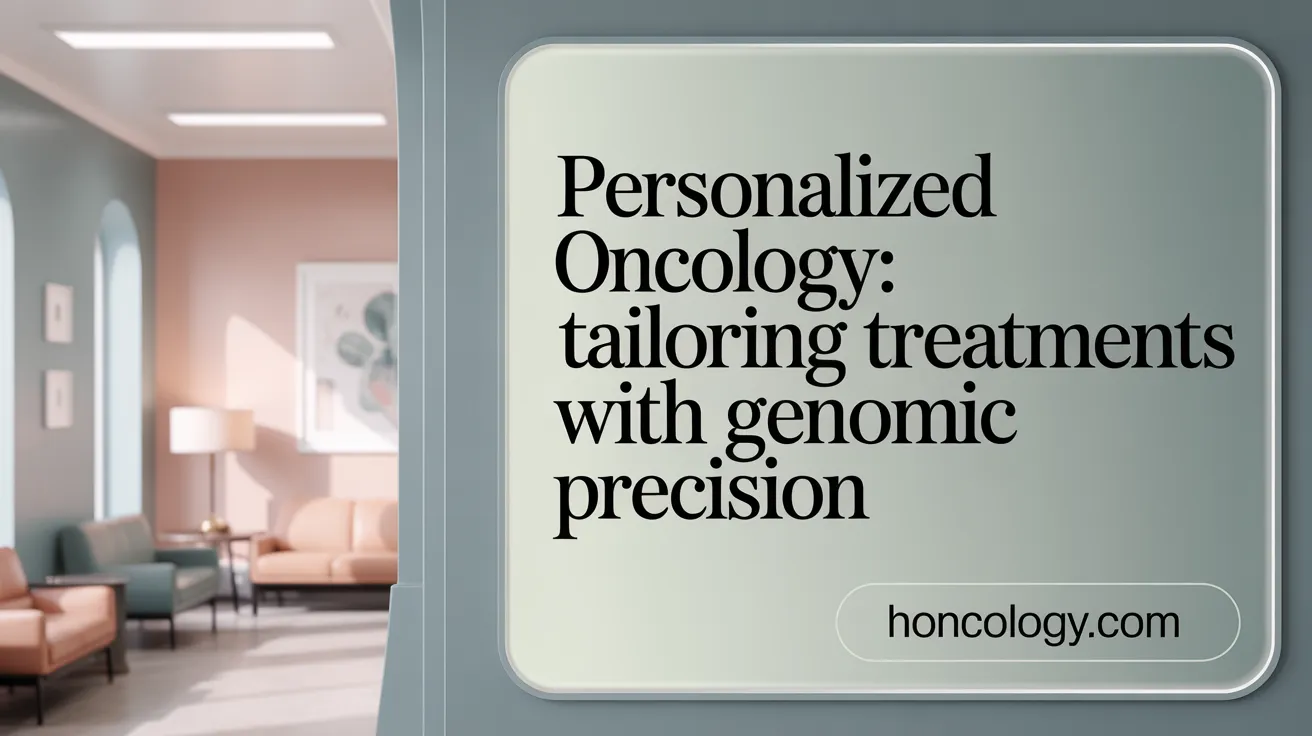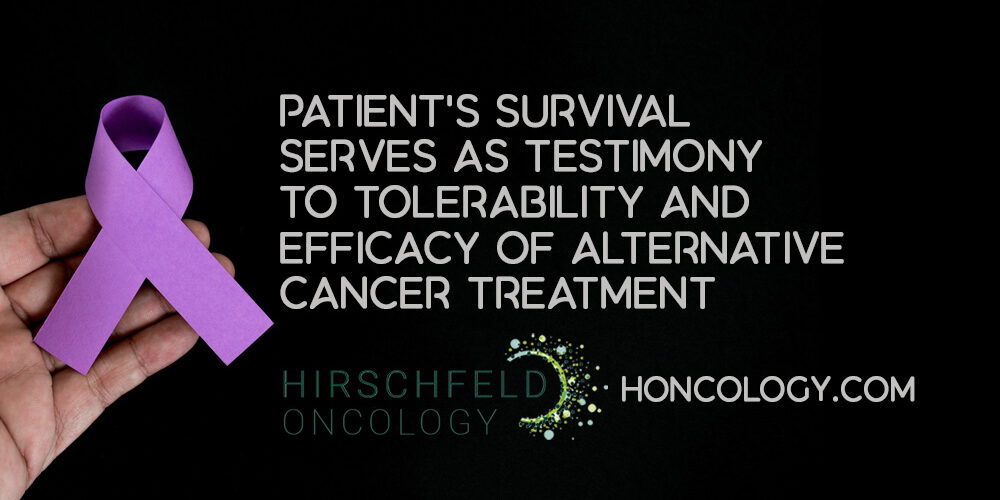Introducing the Power of Genomic Testing in Personalizing Cancer Treatment
Overview of Genomic Testing
Genomic testing decodes the complete set of genes within an individual’s cells, focusing on identifying genetic mutations and variations that influence disease behavior. In cancer care, this involves analyzing the genetic makeup of tumor cells to uncover mutations that drive cancer growth and response to therapies. Testing can be performed on tumor tissue or body fluids, helping clinicians gain a deeper understanding of cancer aggressiveness and treatment options.
Its Significance in Personalized Medicine
By pinpointing the specific genetic alterations in a patient’s tumor, genomic testing enables healthcare providers to tailor treatments uniquely suited to that individual. This personalized approach minimizes unnecessary side effects while improving the effectiveness of therapies. It supports precision medicine goals by guiding targeted therapies, immunotherapies, and drug dosing, ensuring that the chosen treatment best fits the patient’s molecular profile.
Foundations and Impact in Cancer Care
The advent of advanced sequencing technologies, such as next-generation sequencing, has revolutionized cancer diagnostics and treatment planning. Genomic profiling facilitates early detection, predicts prognosis, and helps in selecting therapies that target specific genetic abnormalities. Large-scale genomic initiatives and collaborations have enhanced the clinical utility of genomic tests, making them a cornerstone in the evolving landscape of cancer care and improving patient outcomes.
Understanding Genomic Testing: From Genes to Therapy Selection

What is genomic testing and how does it differ from genetic testing?
Genomic testing analyzes the complete set of genes within cancer cells to detect alterations driving tumor growth and influencing response to treatments. These gene changes, called somatic mutations, are acquired and specific to the tumor. In comparison, genetic testing targets inherited gene mutations in normal cells from blood or saliva to evaluate a person's inherited cancer risk.
How does genomic testing analyze tumors to guide therapy?
Tumor DNA undergoes sequencing using advanced techniques like next-generation sequencing to identify genetic changes including mutations, amplifications, deletions, and gene fusions. Such alterations reveal the cancer's behavior—how fast it grows and spreads—and point to specific, tailored treatments such as targeted therapies or immunotherapies that directly attack the mutated pathways.
Types of genomic tests in oncology
- Tumor tissue sequencing: Analyzes hundreds of cancer-related genes in tumor biopsies (e.g., FoundationOne®CDx).
- Liquid biopsy: Detects circulating tumor DNA in blood for noninvasive genomic profiling (e.g., MSK-ACCESS®).
- Whole-genome and exome sequencing: Comprehensive genomic profiling to find actionable mutations across the genome.
These tests enable oncologists to develop personalized treatment plans, improving outcomes while reducing unnecessary side effects by matching therapies to a tumor's unique genetic profile.
Genomic testing has transformed cancer care from a one-size-fits-all model to precision medicine in cancer care that empowers decisions based on the tumor's molecular blueprint.
Personalized Medicine in Oncology: Tailoring Treatments through Genomics

How does genomic testing contribute to personalized treatment plans in cancer care?
Genomic testing plays a pivotal role in personalized oncology by examining a patient's tumor DNA to identify unique genetic mutations. This information enables clinicians to craft treatment plans that specifically target those mutations, enhancing the effectiveness and reducing side effects of therapies. Beyond guiding targeted treatments, genomic insights predict a patient's response to drugs, facilitating tailored medication dosing through pharmacogenomics.
Role of genomics in precision medicine
Genomics integrates DNA sequencing data into clinical care, allowing the characterization of tumors at a molecular level. It helps distinguish cancer subtypes, uncover prognostic biomarkers, and identify actionable mutations. This molecular profiling transforms precision medicine from a concept to routine practice, steering therapy choices and clinical trial eligibility.
Impact on treatment decisions and outcomes
Genomic profiling shifts therapy away from a one-size-fits-all to personalized regimens, improving outcomes. Patients benefit from treatments that align with their tumor's genetic profile, often resulting in increased treatment efficacy and reduced toxicity. Studies report significant decreases in mortality and disease progression among patients receiving genomically guided therapies (Clinical Utility of Genomic Testing).
Examples of targeted therapies guided by genomic testing
Common mutations such as EGFR, HER2, BRAF, and ALK are detected through testing, leading to the use of corresponding targeted agents like EGFR inhibitors, HER2-directed therapies, or BRAF inhibitors. Immunotherapies, including PD-1 checkpoint inhibitors, are prescribed based on biomarker presence revealed by genomic assays. These targeted therapies exemplify how genomics tailors treatment to individual tumor biology.
Pharmacogenomics in medication optimization
Pharmacogenomic testing evaluates genetic markers that influence drug metabolism and response, such as CYP2D6's role in tamoxifen activity. This knowledge aids in selecting the most suitable drugs and dosing, minimizing adverse effects and enhancing efficacy.
Clinical utility of genomic testing in improving patient care
Comprehensive genomic testing enhances diagnosis, informs treatment strategies, supports clinical trial enrollment, and promotes shared decision-making. It contributes to earlier cancer detection and monitoring of resistance, improving survival rates. However, barriers like cost, accessibility, and clinician education need ongoing attention to maximize benefits (Clinical Utility of Genomic Testing.
| Topic | Details | Significance |
|---|---|---|
| Genomic Testing | Identifies tumor mutations, guides targeted therapies | Personalizes treatment, reduces toxicity |
| Targeted Therapies | EGFR, HER2, BRAF inhibitors based on mutation profile | More effective treatments |
| Pharmacogenomics | Genetic markers influence drug response/dosing | Optimizes medication safety and efficacy |
| Clinical Utility | Improves diagnosis and treatment planning | Enhances patient outcomes and healthcare value |
| Challenges | Cost, access disparities, education needs | Limits widespread adoption |
Advanced Genomic Technologies Transforming Cancer Care
What are the latest technologies used in genomic testing?
Genomic testing in cancer care benefits from cutting-edge technologies that enhance precision and patient outcomes. Key advancements include:
Next-Generation Sequencing (NGS) and Third-Generation Sequencing: These methods enable comprehensive, accurate reading of DNA sequences. NGS analyzes hundreds of genes simultaneously, while third-generation sequencing offers longer reads improving mutation detection accuracy.
Tumor Genetic Profiling: This includes multi-gene panels and whole-exome or genome sequencing from tumor tissue samples. Profiling identifies specific gene mutations, amplifications, deletions, and fusions that influence cancer growth and treatment response.
Liquid Biopsies: Noninvasive testing using blood samples to detect circulating tumor DNA (ctDNA). Liquid biopsies allow for real-time monitoring of tumor genetics, especially when tissue biopsies are challenging.
Multi-Omics Approaches: These integrate data from genomics, proteomics, and metabolomics to capture tumor complexity. Combining various molecular layers offers a more comprehensive understanding of cancer biology.
Artificial Intelligence (AI) and Bioinformatics: AI-powered tools analyze complex genomic datasets to identify significant mutations and predict treatment responses, supporting personalized care decisions.
Together, these technologies transform traditional cancer diagnosis and treatment by providing high-resolution molecular profiles that guide personalized and targeted therapies.
From Genomic Insights to Innovative Treatment Modalities

How do genomic test results influence innovative cancer treatments?
Genomic testing reveals precise genetic alterations in tumors, enabling clinicians to tailor therapies specifically against those mutations. Targeted therapies inhibit proteins altered by these mutations, blocking cancer growth signals. Immunotherapies capitalize on genomic insights by activating the immune system against tumors exhibiting certain genetic profiles.
Targeted therapies and immunotherapies guided by genomic findings
Genomic profiles directly inform the selection of targeted drugs, such as inhibitors for EGFR, HER2, or BRAF mutations. Additionally, immunotherapies like checkpoint inhibitors are guided by genetic markers predicting response. This enhances effectiveness while minimizing exposure to ineffective treatments.
Gene therapies including CRISPR and cell-based treatments
Gene editing approaches, including CRISPR/Cas9, modify cancer or immune cells genetically tailored to the patient's tumor characteristics. Cell-based therapies like CAR-T cell therapy for tumor-specific antigens involve engineering patient T cells to recognize tumor-specific antigens identified through genomic analysis, enabling precise tumor targeting.
Antibody-drug conjugates and oncolytic viruses
Antibody-drug conjugates in targeted cancer therapy selectively deliver cytotoxic agents to tumor cells expressing specific surface proteins found through genomic profiling. Oncolytic viruses in immunotherapy are engineered to infect and destroy cancer cells and provoke immune responses, complementing other personalized treatments.
Addressing drug resistance through genetic engineering
Resistance arises when cancer cells mutate to evade drugs. Innovative strategies use genetic engineering to render cancer cells susceptible to novel treatments—for example, making tumor cells produce cytotoxic substances targeting resistant clones—turning their evolution against them. See also advances described in cancer treatment resistance and genetic engineering.
Combination therapies enhancing treatment efficacy
Combining therapies—small molecule targeted agents, antibody-drug conjugates, cell-based therapies, gene therapy for cancer, immunotherapies, chemotherapy, and radiotherapy—guided by tumor genomics can overcome resistance and improve clinical outcomes. This integrated approach maximizes tumor eradication while reducing side effects.
These innovations show how genomic testing transforms cancer care, allowing precise, multifaceted, patient-specific treatments that improve effectiveness and quality of life.
The Crucial Role of Genetic Counseling and Multidisciplinary Care
Distinguishing Somatic vs Inherited Mutations
Genomic testing in cancer identifies two main types of mutations: somatic mutations, which arise in tumor cells, and inherited (germline) mutations, passed down through families. Understanding this distinction is vital, as inherited mutations can influence cancer risk in patients and their relatives, guiding prevention and treatment (Genetic testing for cancer prevention and inherited risk).
Why is genetic counseling important alongside genomic testing?
Genetic counseling is essential to help patients and families interpret the complex results of genomic and genetic tests. Counselors explain the implications of inherited mutations, support decisions about screening and preventive measures, and tailor treatment options for personalized care. This guidance ensures patients and relatives are well-informed about risks and management strategies (Inherited cancer risk and genomics).
Integrating Genomic Data into Clinical Decision Making
Incorporating genomic data into healthcare streamlines diagnosis and personalizes therapy plans. Identifying specific gene changes helps clinicians select targeted treatments, predict responses, and monitor progress, improving outcomes.
Support from Multidisciplinary Teams
Effective genomic medicine requires collaboration among oncologists, geneticists, genetic counselors, pathologists, and other specialists. This team approach provides comprehensive care, combining expertise to interpret genomic data, offer counseling, and devise individualized treatment strategies that consider both tumor characteristics and inherited risks (Personalized cancer treatment).
Challenges and Equity Considerations in Implementing Genomic Testing

What challenges limit the widespread use of genomic testing?
Despite its transformative potential, genomic testing faces several significant barriers to widespread adoption. The high cost of advanced sequencing technologies and testing procedures remains a primary hurdle, limiting availability, especially in resource-constrained settings.
Data privacy in genomic medicine and data security concerns also pose challenges. Handling sensitive genetic information requires stringent safeguards to prevent unauthorized access or misuse, and patients may be hesitant to undergo testing without strong protections.
Access disparities further compound these issues. Underserved populations, including those from low-income backgrounds, rural areas, and racial minorities, often have limited access to genomic testing services. This can perpetuate existing inequities in cancer care and outcomes as discussed in personalizing care for patients of all backgrounds.
Addressing disparities in cancer outcomes among different populations
Evidence shows that populations such as Black individuals and rural residents face higher death rates from various cancers, highlighting the urgency of equitable care delivery. Tailoring personalized medicine approaches must consider these disparities to avoid widening the gap in health outcomes.
The need for clinician and patient education
Both healthcare providers and patients require education and resources to interpret and utilize genomic information effectively. Enhancing genetic literacy can empower informed decision-making and promote acceptance of genomic testing.
Efforts to improve equitable access and data security
Healthcare systems and organizations are working to expand coverage and affordability of genomic tests, increase genetic counseling services, and integrate clinical decision support tools as part of genomic testing in cancer care strategies. Advanced electronic medical records (EMR) systems are customized to securely manage genetic data and aid providers, highlighted in genomics integration into clinical workflows.
Collaborations with genetic specialists enhance care delivery, ensuring complex cases receive expert guidance. Initiatives targeting underrepresented groups aim to increase inclusivity in genomic research and testing, addressing systemic barriers explained in challenges in genomic medicine.
Collectively, these strategies aim to foster trustworthy, accessible, and ethically sound implementation of genomic testing to benefit diverse patient populations.
Future Directions: Integrating Genomic Testing into Routine Cancer Care

How is genomic testing expected to evolve in cancer care?
Genomic testing is increasingly becoming a core part of routine cancer care with growing integration of genomic data into electronic medical records (EMRs). This facilitates seamless access to a patient's genetic information for healthcare providers, improving the precision of clinical decisions. EMR systems are being enhanced to store genetic variants as discrete data points and use clinical decision support tools like Best Practice Alerts to guide personalized treatment plans efficiently (Genomics in Personalized Medicine).
Incorporation of genomic data into electronic medical records
Healthcare systems are adapting their EMRs to incorporate detailed genomic information. This integration helps clinicians easily interpret genetic test results within the context of other clinical data, promoting timely and tailored interventions (Clinical Utility of Genomic Testing, Genomic Testing in Cancer Care.
Enhancing clinical decision support tools
Advanced decision support is evolving to utilize genomic data, providing oncologists and care teams with actionable insights. These tools assist in selecting targeted therapies, enrolling patients in appropriate clinical trials, and optimizing treatment strategies based on a comprehensive genetic profile (Genomic Testing in Cancer Care, Precision medicine in cancer care.
Expanding use of polygenic risk scores
Polygenic risk scores, which compile the effect of multiple genetic variants to estimate an individual's cancer risk, are set to expand their role in personalized oncology. These scores support prevention strategies by identifying high-risk individuals early, enabling proactive screening and interventions (Genomics Integration in Personalized Medicine, Role of genetic testing in cancer prevention.
Ongoing research in real-time tumor response and smart drug delivery
Research continues into innovative approaches, such as ex vivo tumor drug sensitivity testing to assess responses in real time and the development of smart drug delivery systems in oncology. These systems aim to customize dosing dynamically using wearable sensors and molecular data, potentially reducing side effects and enhancing treatment efficacy (Personalized Medicine in Cancer Care, Research on smart drug delivery systems.
Together, these advances reflect a future where genomic testing informs all facets of cancer management, from prevention and diagnosis to personalized and adaptive therapies, improving patient outcomes and care quality (Precision Medicine in Cancer Care, Genomic Testing in Cancer Care.
Genomic Testing: Paving the Way for Personalized Cancer Care
Transforming Patient Outcomes with Genomic Testing
Genomic testing examines the genetic makeup of cancer cells, revealing mutations and gene activity crucial for tailoring treatments. This precision enables the selection of targeted therapies and immunotherapies that improve effectiveness while minimizing side effects. Studies demonstrate that such personalized approaches can reduce mortality risk and enhance quality of life.
Integrating Advanced Technologies and Multidisciplinary Teams
Cutting-edge technologies like next-generation sequencing and liquid biopsies empower clinicians to analyze tumors in detail. Success in personalized cancer care depends on collaborative efforts involving oncologists, genetic counselors, and clinical researchers who interpret genomic data to devise individualized treatment plans.
Toward Equitable Access to Personalized Treatments
Despite advances, disparities persist in access to genomic testing and precision oncology. Efforts are underway to broaden availability, reduce costs, and enhance genetic literacy to ensure all patients benefit from transformative personalized cancer therapies.





.png)


.png)
.png)




